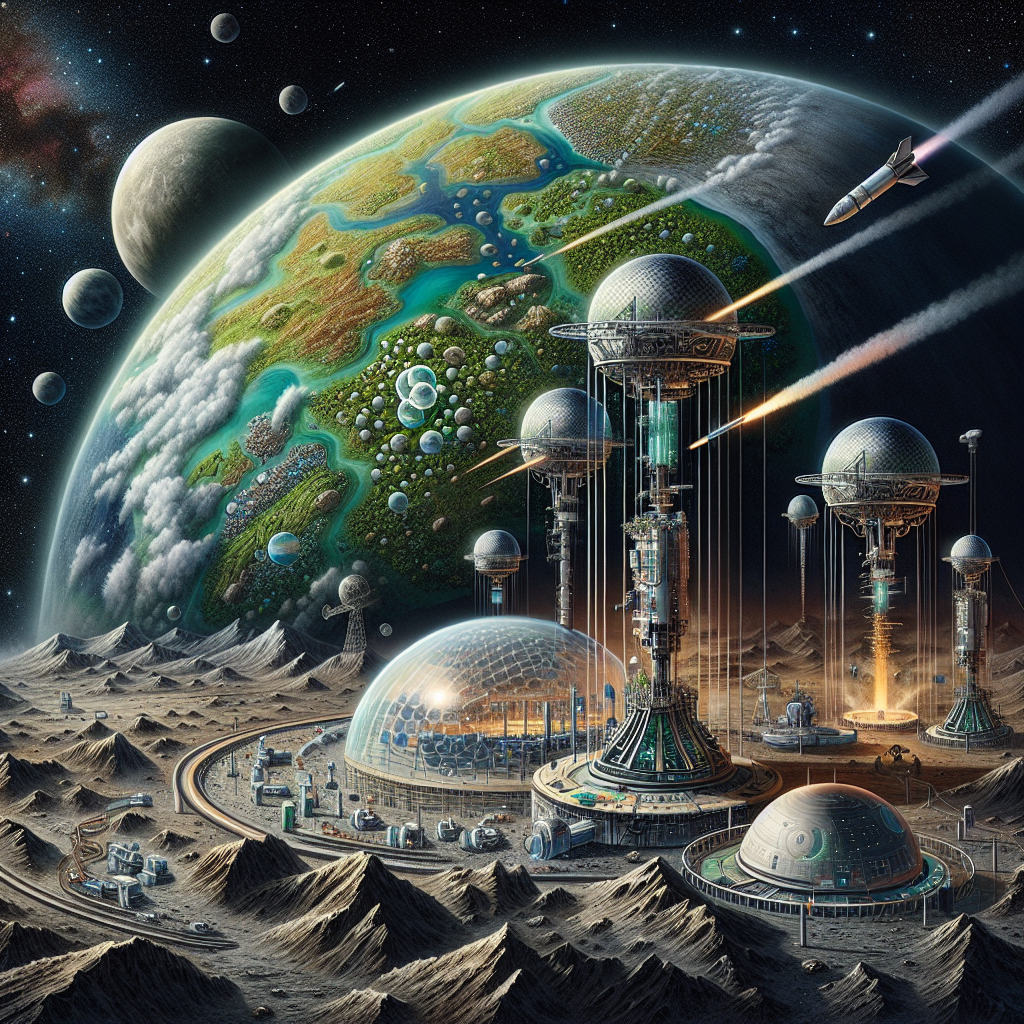[ad_1]
Introduction
The idea of terraforming other planets has long captured the imagination of scientists, science fiction enthusiasts, and the general public alike. The concept revolves around modifying the environment of a planet to make it habitable for Earth-like life. As we look to the future, understanding both the possibilities and challenges of terraforming is crucial.
Understanding Terraforming
Terraforming involves altering a planet’s atmosphere, temperature, surface, or ecology to make it more Earth-like. This could include:
- Modifying atmospheric composition
- Adjusting temperatures
- Creating bodies of water
- Introducing Earth life forms
The Science Behind Terraforming
Planetary Candidates for Terraforming
Currently, the most discussed candidates for terraforming include:
- Mars: The fourth planet from the Sun, with a similar day length to Earth.
- Venus: Despite its hostile environment, potential exists in altering its thick atmosphere.
- Moons of Jupiter and Saturn: Such as Europa and Titan, which may harbor subsurface oceans.
Methods of Terraforming
Several methods have been proposed for making planets habitable:
- Greenhouse Gases: Introducing gases like CO2 to warm the planet.
- Asteroid Impacts: Redirecting asteroids to strike a planet and release gases.
- Moss and Algae: Planting life forms that can survive in harsh conditions.
Challenges of Terraforming
Technological Challenges
The technological requirements for terraforming are immense:
- Developing methods for atmosphere generation
- Creating systems for transporting material
- Managing ecological balance
Ethical and Moral Considerations
Beyond the science, ethical questions arise:
- Should we alter another planet’s ecosystem?
- What rights do extraterrestrial environments have?
- Are we repeating mistakes made on Earth?
Data Insights on Terraforming
Potential Timeframes
| Planet | Estimated Terraforming Timeframe | Feasibility Score (1-10) |
|---|---|---|
| Mars | 100 to 1,000 years | 7 |
| Venus | 1,000+ years | 4 |
| Europa | Unknown | 2 |
Case Studies of Terraforming Concepts
The Mars Society’s Proposal
The Mars Society has proposed several ideas for terraforming Mars, including building bio-domes and using giant mirrors to warm the surface. This case study highlights the intersection of science and society.
Venus Terraforming Initiatives
Efforts to terraform Venus revolve around the planet’s thick atmosphere, which may be tackled through innovative engineering, such as aerostat habitats floating high above the clouds.
Quotes on Terraforming
“Terraforming is not just a vision for the future; it is an imperative to ensure humanity’s survival in the cosmos.” – Unknown
Conclusion
Terraforming other planets presents both exciting possibilities and daunting challenges. While the dream of habitable worlds may seem distant, advances in science and technology continue to pave the way for potential breakthroughs. As we journey into the stars, we must consider not just the feasibility, but also the ethical implications of transforming alien worlds.
Frequently Asked Questions
What is the primary goal of terraforming?
The primary goal of terraforming is to create an environment suitable for human habitation and Earth-like life.
Can terraforming be done with current technology?
While significant advancements have been made, current technology is not yet capable of fully terraforming any planet.
What are the environmental implications of terraforming?
Terraforming could have unforeseen environmental impacts, both on the target planet and in relation to Earth’s ecosystems.
Is there any precedent for large-scale terraforming?
While there are no examples of true terraforming, global climate engineering experiments on Earth serve as a small-scale parallel.
[ad_2]
